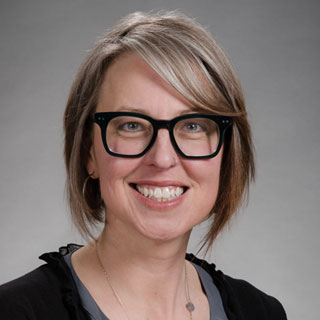September 9, 2024
CREATE associate director Heather Feldner is leading research on the relationships between lived experiences of ableism, biases of healthcare providers, and both short- and long-term health outcomes.
The collaboration, including researchers from the UW Department of Rehabilitation, the UW iSchool, and the University of Pittsburgh, is funded by a 5-year, $3.2 million NIH R01 grant — the first funding of its kind from the NIH to support ableism and health disparity research.
“The long-term goal of this work is to reduce disparities and maximize participation, health, and quality of life in partnership with people with mobility disabilities. This work will leverage our team’s multidisciplinary expertise, lived experience of disability, and past work to fill a critical gap in understanding underlying mechanisms that perpetuate ableism in healthcare so that more effective bias-mitigating solutions may be developed and evaluated in the future.”
Dr. Heather Feldner, Assistant Professor, UW Medicine Rehabilitation Medicine and CREATE Associate Director

In a mixed-methods study with 40 rehabilitation providers and over 400 people with mobility disabilities in Washington and Pennsylvania, the team will investigate the impacts of ableism on health outcomes of individuals with mobility disabilities. In addition, the team will conduct cutting-edge Natural Language Processing to conduct a retrospective chart analysis to detect patterns of potential bias in written provider documentation.
Collaborators at the UW include CREATE Director for Education Mark Harniss, Jeanne Hoffman, and Heather Evans, all from Rehabilitation Medicine, and Lucy Lu Wang from the iSchool.
Addressing critical knowledge gaps
Ableism, the act of discrimination and social prejudice based on presumed or actual impairment and/or disability, is widespread in society, including healthcare. Multiple factors may contribute to ableism in healthcare — implicit and explicit biases of providers, lack of knowledge about disability, and inaccessible environments. But the mechanisms by which these factors affect the health outcomes of people with disabilities have not been widely explored. And while people with disabilities comprise 25% of the world’s population, they have only recently been recognized as a health disparities population.